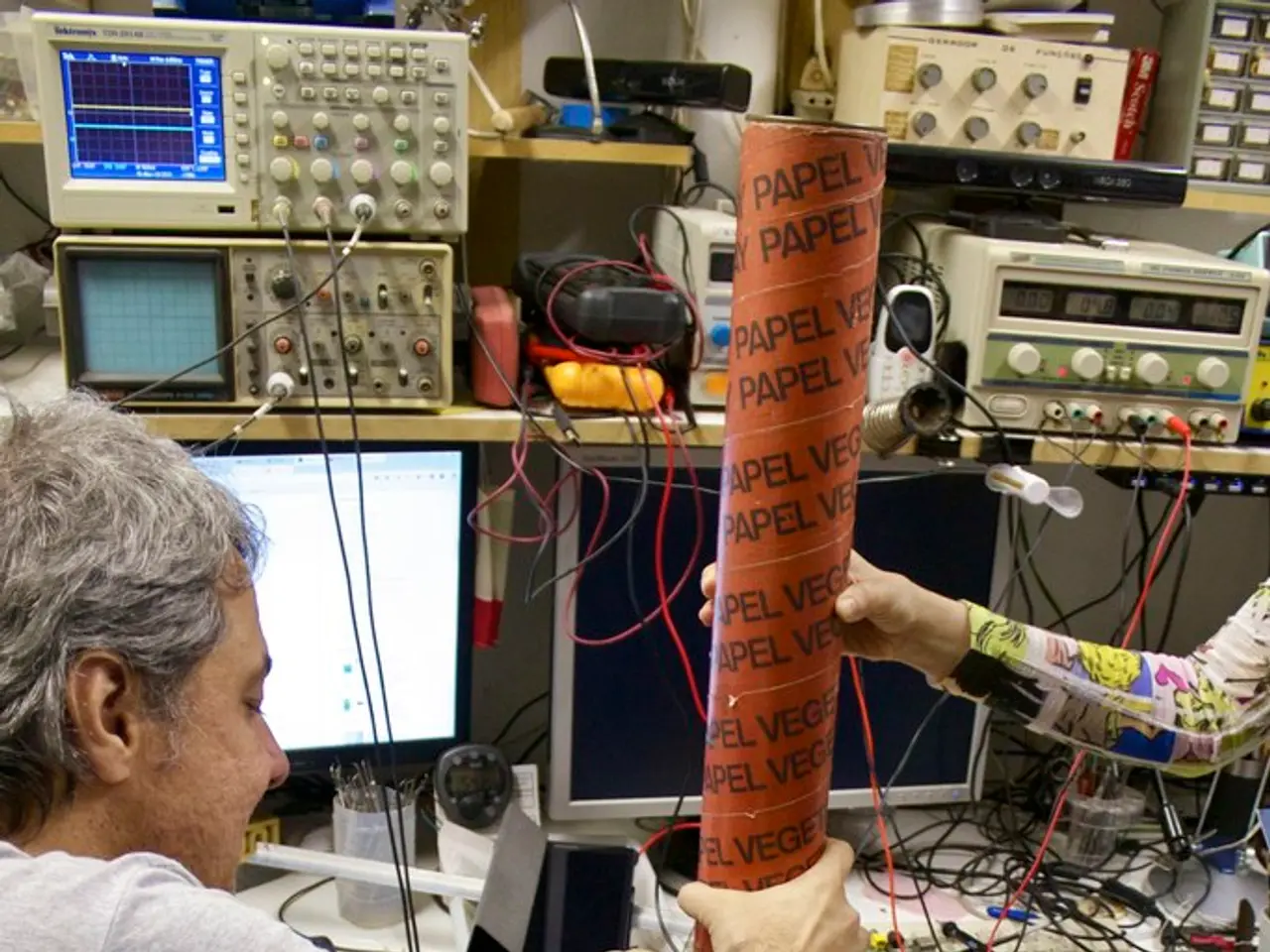Digital Health Care Services' Effect on Natural Environment
In the rapidly evolving world of technology, digital twins have emerged as a promising tool in the healthcare sector. These digital representations of equipment, including people, offer a wealth of benefits, such as predictive oncology and tracking various body systems, organs, cells, or molecular levels [1]. However, the environmental and ethical implications of digital twins are becoming increasingly apparent.
Environmental Impacts
The primary environmental concerns surrounding digital twins revolve around increased carbon emissions, energy consumption, and electronic waste production. A typical outpatient healthcare appointment already emits about 50 kg CO₂ equivalent, and the use of digital twins further adds to this footprint due to the extensive data processing and storage involved [1][3]. AI models integral to digital twins require significant computational power, comparable in emissions to hundreds of hours of air travel during training phases [1].
Moreover, digital twins depend heavily on data centers that consume large amounts of electricity, often sourced from fossil fuels, thereby increasing their carbon footprint. Cooling these centers also demands high water usage, which can stress local resources, especially in drought-prone regions [2].
Lastly, digital twins utilize hardware made from minerals and metals, such as cobalt and lithium, that are typically mined under problematic environmental and ethical conditions. Electronic waste resulting from short hardware life cycles is a serious concern, as only about 17% of e-waste is recycled; the remainder may release toxins like lead and mercury when incinerated or dumped [2].
Ethical Considerations
Beyond the environmental concerns, digital twins also raise ethical questions. Managing detailed patient data through digital twins raises concerns over data privacy and potential breaches [1][3]. Furthermore, digital twins may exacerbate disparities in healthcare access due to the cost and infrastructure demands, risking unequal distribution of benefits [1][3].
The environmental costs must be balanced with clinical benefits, considering principles of reducing waste, reusing resources, and recycling in technology deployment [1][3]. The ethical challenges are intertwined with the environmental impacts, as the use and dissemination of digital twins have ecological implications, contributing to carbon emissions and requiring resources that may be mined under poor labor conditions.
A Path Forward
Addressing these environmental and ethical challenges requires a holistic approach combining sustainability principles and ethical frameworks alongside technological development in healthcare [1][3]. Principles for sustainability, ecological wisdom (reduce, reuse, recycle), and individual action are likely to be needed in making digital twins more sustainable.
Dr. Cristina Richie, a Lecturer in Ethics of Technology at Edinburgh University Future's Institute, Department of Philosophy, emphasises the importance of sustainability principles in the future of digital twins [1]. The author of the article, Dr. Richie, can be contacted at [email protected]. The article was published in "Digital Health & AI Insights".
In conclusion, while digital twins hold the potential for better precision and personalised health care, their environmental footprint includes substantial carbon emissions, energy use, and e-waste generation, which are intertwined with ethical challenges related to privacy, equity, and the social impact of resource extraction. A balanced approach is necessary to harness the benefits of digital twins while minimising their environmental and ethical impacts.
[1] Richie, C. (2021). Digital Twins: A New Frontier in Healthcare with Ethical and Environmental Implications. Digital Health & AI Insights. [2] European Environment Agency (2019). E-waste in the European Union. [3] United Nations Framework Convention on Climate Change (2021). Climate Change and Health.
- The environmental implications of digital twins extend to increased carbon emissions, energy consumption, and electronic waste production, contributing to the footprint of a standard outpatient appointment.
- AI models associated with digital twins, due to their heavy reliance on computational power, have emissions comparable to hundreds of hours of air travel during training phases.
- The production and disposal of electronic devices utilized by digital twins, often containing minerals like cobalt and lithium, can have detrimental environmental and ethical consequences.
- Balancing the clinical benefits of digital twins with their environmental and ethical impacts necessitates a holistic approach that combines sustainable principles, ethical frameworks, and technological advancements in healthcare.




